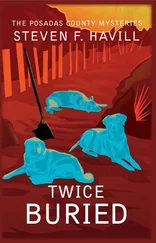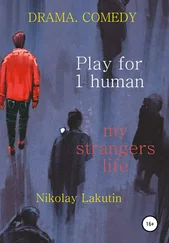Leighton Gage - Buried Strangers
Здесь есть возможность читать онлайн «Leighton Gage - Buried Strangers» весь текст электронной книги совершенно бесплатно (целиком полную версию без сокращений). В некоторых случаях можно слушать аудио, скачать через торрент в формате fb2 и присутствует краткое содержание. Жанр: Полицейский детектив, на английском языке. Описание произведения, (предисловие) а так же отзывы посетителей доступны на портале библиотеки ЛибКат.
- Название:Buried Strangers
- Автор:
- Жанр:
- Год:неизвестен
- ISBN:нет данных
- Рейтинг книги:4 / 5. Голосов: 1
-
Избранное:Добавить в избранное
- Отзывы:
-
Ваша оценка:
- 80
- 1
- 2
- 3
- 4
- 5
Buried Strangers: краткое содержание, описание и аннотация
Предлагаем к чтению аннотацию, описание, краткое содержание или предисловие (зависит от того, что написал сам автор книги «Buried Strangers»). Если вы не нашли необходимую информацию о книге — напишите в комментариях, мы постараемся отыскать её.
Buried Strangers — читать онлайн бесплатно полную книгу (весь текст) целиком
Ниже представлен текст книги, разбитый по страницам. Система сохранения места последней прочитанной страницы, позволяет с удобством читать онлайн бесплатно книгу «Buried Strangers», без необходимости каждый раз заново искать на чём Вы остановились. Поставьте закладку, и сможете в любой момент перейти на страницу, на которой закончили чтение.
Интервал:
Закладка:
“And?”
“The guy in the grave wasn’t Gerhard. The real Gerhard, the one who’d been issued a permanent resident visa, was a taller man, and younger. Next thing we knew, a whole raft of foreigners descended on us: Israelis, Americans, West Germans, pathologists, forensic anthropologists, security services, the whole lot. Some of them said the body was Mengele’s, some of them said it wasn’t. They would have kept arguing for years if the West Germans hadn’t talked Mengele’s son into contributing a sample of his DNA.”
“Mengele had a son?”
Silva nodded. “Rolf. He admitted that the old bastard had been living here for years. Came over to visit him once, said they didn’t get along, but we could hardly expect him to turn in his own father.”
“And the body? Was it Mengele’s?”
“It was. Turned out he died of a stroke while swimming in the sea off Bertioga.”
Silva took another photo out of his briefcase. It was a black-and-white head shot of a smiling young man wearing an old-fashioned necktie and what appeared to be a black jacket. “Mengele,” he said. “A photo taken in 1940. We got it from the West German police, and they got it from his war records. See that little growth on his face and the big gap between his front teeth?”
Sampaio nodded.
“Distinctive,” he said.
“Now look at the first photo again.”
The director put both photos side by side, looked from one to the other.
“Sure as hell looks like the same guy,” Sampaio said. He started to rub his chin.
“Here’s the clincher,” Silva said. “Mengele had a nick-name. The story is that he was a bit of a prankster in his youth. A circus passed through his town. They had an Italian clown.”
“Beppo?”
“Beppo. The townsfolk gave Mengele the nickname, and the nickname stuck. He used it all of his life.”
“I’ll be damned,” Sampaio said. “So Gerhard was Mengele, and Beppo was Mengele, and Mengele and Bittler were buddies?”
“Buddies, I don’t know. Colleagues, certainly. Look at the white coats, the inscription.”
Sampaio left off studying the photographs and cast a sus-picious eye on Silva.
“And how come you just happened to recognize Mengele?
Because I saw his photos hundreds of times. The case made a major impression on me. Nazi in our own backyard and all that.”
“Okay. Hold on. Let’s go back a bit. You figure Mengele helped Bittler to put this whole thing together, the clinic, the organ thefts, all of that?”
“We looked into Bittler’s background. He would never have had the money to go into business on his own. But Mengele did. Mengele’s family owned a big company that made agricultural machinery. Still does. They’re loaded. The son admitted they sent the old man money. Not so much until 1978, and then, all of a sudden, a lot of it, more than two million deutschmarks in 1978, another eight hundred and fifty thousand in early 1979.”
“What’s that in dollars, or euros?”
“I don’t remember, but, like I said, it’s a lot, and we were never able to find out what he did with it.”
“But now you figure-”
“According to the people we interviewed, the people that knew him, the old man wasn’t into money. What turned him on was using human beings as guinea pigs. He would have needed a front man, a partner, someone who could give the patina of legitimacy to a clinic. Or maybe I should say a lab-oratory. He had kidney problems in his youth. Was fascinated with the idea of transplants.”
Instead of looking shocked or somber, Sampaio broke into a broad smile. “Christ, what a story. The greedy young punk who’s in it for the money and the world-class war criminal who likes to cut people up for fun. It’s gonna be front-page news in the whole damned-”
He brought himself up short. The smile faded. “Who else knows about this?” he asked.
“My nephew and four other cops in Sao Paulo.”
“Federal cops? People who ultimately report to me?”
“Yes.”
The smile came back. “Get onto all five of them right now,” Sampaio said. “Tell them they’re to say nothing about this to anyone. I want to break this story myself.”
“I rather thought you might,” Silva said.
Author’s Notes
The second half of Josef Mengele’s life is shrouded in mystery, but he did, indeed, suffer a fatal stroke while bathing in the ocean off the Brazilian seaside town of Bertioga and his sobriquet was Beppo. It is equally true that he suffered from kidney problems in his youth, was fascinated by the idea of organ transplants, and was buried in Embu under the name Wolfgang Gerhard. The roles attributed to his friend, Sedlmeier, and his son, Rolf, are also part of the historical record. As of this writing, his remains are still lying in a drawer at the Instituto Medico Legal in Sao Paulo.
The first Portuguese explorers landed in Brazil in 1500, and the indigenous inhabitants of the country have been exploited, in one way or another, ever since. There were ap-proximately five million native Brazilians at the time of the European conquest. Today, their numbers don’t exceed three hundred fifty thousand, of which as many as forty thousand have had little or no contact with modern society.
Brazil is a place of many religions and many cults, with mil-lions of people who actively practice more than one belief at the same time. Candomble, for example, the Brazilian form of what is called Santeria in Cuba and Vodou in Haiti, often attracts the same people who frequent Sunday mass at the local Catholic church. Despite the condemnation of the Vatican, the two religions persist and intermingle, existing side by side in perfect harmony.
Wicca, much rarer in Brazil and much maligned as a form of witchcraft, is an earth-based religion in which the main belief is to do harm to none.
But Brazil harbors evil cults, as well. A case in point was the Superior Universal Alignment Sect, members of which were charged with kidnapping boys, cutting off their geni-tals, and sacrificially killing them. The cult’s members included two doctors and the son of a prominent business-man, all well-to-do and all with political connections. It took eleven years, and intervention by the governor of the Amazonian state of Para, to force a change of venue and bring the perpetrators to justice.
According to recent research, 79 percent of all Brazilians (the figure is higher for urban dwellers) live in fear that they or someone close to them might be a victim of violent crime. They have good reason. The murder rate in Sao Paulo is six-teen times higher than in Tokyo.
Countrywide, at least one million people live in shanty-towns where the police are loathe to go.
The Comando Vermelho and the Primeiro Comando Capital (PCC) exist and are currently at war with the governments of Sao Paulo and Rio de Janeiro. They do, indeed, kill hundreds of policemen.
Rumors of murder for the purpose of organ theft persist.
None have been confirmed.
Интервал:
Закладка:
Похожие книги на «Buried Strangers»
Представляем Вашему вниманию похожие книги на «Buried Strangers» списком для выбора. Мы отобрали схожую по названию и смыслу литературу в надежде предоставить читателям больше вариантов отыскать новые, интересные, ещё непрочитанные произведения.
Обсуждение, отзывы о книге «Buried Strangers» и просто собственные мнения читателей. Оставьте ваши комментарии, напишите, что Вы думаете о произведении, его смысле или главных героях. Укажите что конкретно понравилось, а что нет, и почему Вы так считаете.












